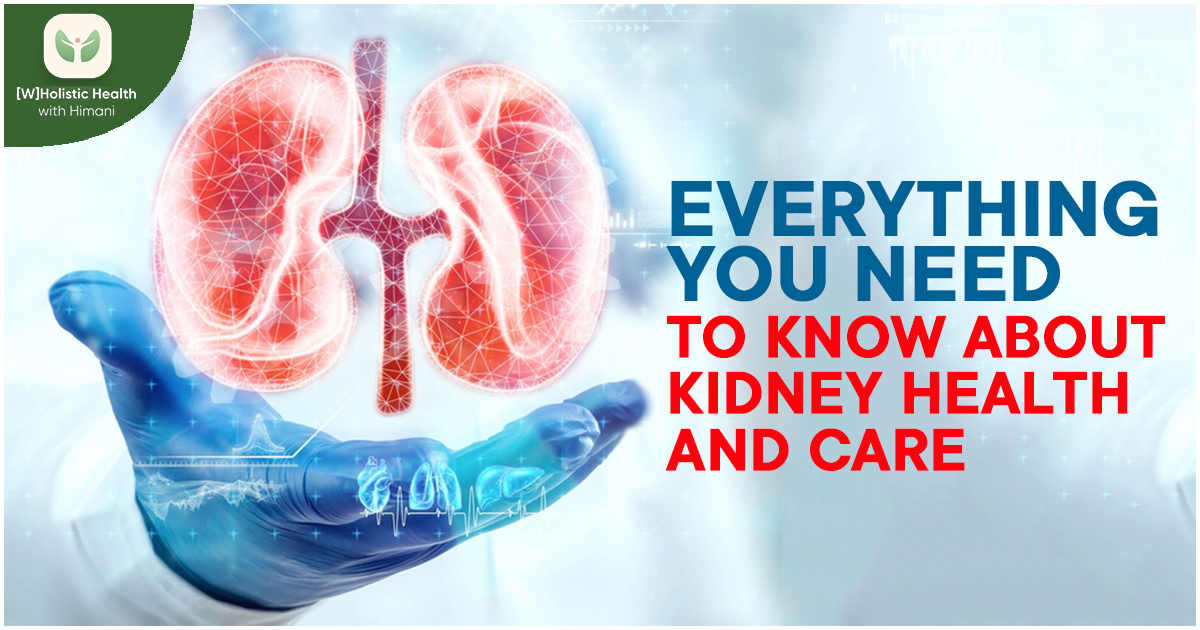Healthy kidneys are vital organs in the human body, functioning as natural filters that maintain the body’s chemical balance. Each kidney is roughly the size of a fist and works tirelessly to filter approximately 50 gallons of blood daily, removing waste, excess fluids, and toxins. This guide dives deep into the roles of kidneys, common diseases, diagnostic approaches, and actionable tips to maintain optimal kidney health.
Table of Contents
ToggleWhat is the Role of the Kidneys in Our Body?
The kidneys play a crucial role in maintaining overall health by filtering blood, balancing electrolytes, regulating blood pressure, and producing essential hormones.
Check Out Our 3R Program
Key Kidney Functions:
- Waste Filtration and Excretion:
- Removes waste products like urea, creatinine, and excess salts.
- Excretes these substances through urine.
- Fluid and Electrolyte Balance:
- Regulates sodium, potassium, and calcium levels to maintain fluid balance.
- Blood Pressure Regulation:
- Produces renin, an enzyme that helps control blood pressure.
- Hormone Production:
- Releases erythropoietin, which stimulates red blood cell production.
- Converts vitamin D into its active form, supporting bone health.
- Acid-Base Regulation:
- Maintains the body’s pH balance by excreting hydrogen ions and reabsorbing bicarbonate.
Read More: Liver Health Essentials: Your Guide to a Healthy Liver
What Are Common Kidney Diseases and Their Causes?
Kidney diseases can arise due to infections, lifestyle factors, genetics, or other health conditions. Here are some of the most common kidney-related issues:
- Chronic Kidney Disease (CKD):
- Progressive loss of kidney function over time.
- Causes include diabetes, hypertension, and glomerulonephritis.
- Acute Kidney Injury (AKI):
- Sudden loss of kidney function due to dehydration, infections, or drug toxicity.
- Kidney Stones:
- Hard mineral deposits are formed in the kidneys due to concentrated urine or excess calcium, oxalate, or uric acid.
- Urinary Tract Infections (UTIs):
- Bacteria often cause infections affecting the urinary system.
- Polycystic Kidney Disease (PKD):
- A genetic disorder leads to the development of fluid-filled cysts in the kidneys.
- End-Stage Renal Disease (ESRD):
- Complete failure of kidney function, requiring dialysis or a transplant.
How Can You Assess the Health of Your Kidneys?
Early detection of kidney issues is critical to prevent severe complications. Medical tests and awareness of symptoms can help monitor kidney health.
Diagnostic Tools:
- Blood Tests: Measure creatinine, urea, and glomerular filtration rate (GFR) levels to assess kidney function.
- Urine Tests: Detect urine protein, blood, or infection markers.
- Imaging Tests: Ultrasound or CT scans identify structural abnormalities or blockages.
- Kidney Biopsy: Analyzes kidney tissue for specific diseases.
Warning Signs of Kidney Damage:
- Swelling in the legs, ankles, or face.
- Persistent fatigue and weakness.
- Foamy or dark-colored urine.
- High blood pressure.
- Unexplained weight loss or appetite changes.
Read More: Understanding Women’s Health: A Holistic Guide

What Lifestyle Factors Affect Kidney Health?
Kidney health is significantly influenced by diet, hydration, and overall lifestyle. Adopting healthy habits can prevent or manage kidney-related issues.
Negative Lifestyle Factors:
- Excessive Salt Intake: Increases blood pressure, straining the kidneys.
- Dehydration: Reduces the kidneys’ ability to filter waste effectively.
- Overuse of Painkillers: Nonsteroidal anti-inflammatory drugs (NSAIDs) can damage kidney tissues over time.
- Smoking: Reduces blood flow to the kidneys, impairing their function.
- High Sugar Intake: Increases the risk of diabetes, a leading cause of kidney disease.
Positive Lifestyle Factors:
- Adequate Hydration: Drinking enough water supports waste elimination.
- Balanced Diet: Reduces the workload on kidneys by providing essential nutrients.
- Regular Exercise: Lowers blood pressure and improves overall kidney function.
- Avoiding Smoking and Alcohol: Minimizes kidney stress and damage.
- Stress Management: Reduces cortisol levels, which can impact kidney health.
Why is a Healthy Kidney Important for Overall Health?
Healthy kidneys are essential for maintaining homeostasis. Poor kidney function leads to toxin accumulation, electrolyte imbalances, and systemic health issues such as cardiovascular disease and weakened immunity. According to The National Kidney Foundation, individuals with kidney disease are 20% more likely to develop heart problems.
Nutrition for Kidney Health
What Nutrients Are Essential for Kidney Health?
Certain nutrients support kidney function and protect against damage:
- Potassium: Balances fluid levels and prevents muscle cramps.
- Calcium and Phosphorus: Supports bone health while maintaining kidney efficiency.
- Vitamin D: Helps regulate calcium and phosphorus levels.
- Omega-3 Fatty Acids: Reduce inflammation in the kidneys.
- Antioxidants: Combat oxidative stress that damages kidney cells.
What Are the Best Foods for Kidney Health?
- Berries: Blueberries, strawberries, and cranberries are high in antioxidants.
- Leafy Greens: Spinach and kale provide essential nutrients while reducing inflammation.
- Fish: Salmon and mackerel are rich in omega-3 fatty acids.
- Garlic: Contains sulfur compounds that protect kidney tissues.
- Apples: High in fiber and help control blood sugar levels.
What Foods Should You Avoid for Kidney Health?
- Processed Foods: Contains high levels of sodium and preservatives.
- Red Meat: Excess protein can strain kidney function.
- Carbonated Drinks: Loaded with phosphorus, which can harm the kidneys.
- High-Oxalate Foods: Spinach and rhubarb can contribute to kidney stones.
- Alcohol: Causes dehydration and impairs kidney filtration.
How Can You Plan a Kidney-Friendly Diet?
- Breakfast: Oatmeal with fresh berries and a sprinkle of chia seeds.
- Lunch: Grilled chicken with steamed broccoli and quinoa.
- Dinner: Baked salmon with roasted sweet potatoes and green beans.
- Snacks: Unsalted nuts and fresh fruit like pears or watermelon.
How Can a Holistic Nutrition Health Coach Help You?
A holistic nutrition health coach offers a personalized, whole-body approach to kidney health by addressing diet, lifestyle, and wellness. Here’s how they can assist:
- Customized Meal Plans: Coaches design kidney-friendly diets that reduce strain on kidneys while providing essential nutrients.
- Lifestyle Changes: They guide you in reducing salt intake, managing stress, and staying hydrated.
- Supplement Guidance: Coaches recommend safe supplements like cranberry extract or probiotics to support kidney function.
- Accountability and Support: Regular sessions ensure consistency with your health goals.
- Mind-Body Integration: Stress-reducing practices like yoga and meditation improve kidney function by reducing cortisol levels.
Natural Remedies for Kidney Health
What Herbs and Natural Supplements Support Kidney Health?
- Cranberry Extract: Prevents urinary tract infections.
- Dandelion Root: Acts as a natural diuretic, aiding in toxin elimination.
- Turmeric: Reduces kidney inflammation.
- Ginger: Improves digestion and reduces kidney stress.
What Lifestyle Changes Can Improve Kidney Health?
- Stay Active: Engage in moderate exercise like walking or swimming.
- Sleep Well: Rest supports kidney repair and regeneration.
- Drink Water: Aim for 8-10 glasses daily, depending on activity levels.
- Limit Processed Foods: Opt for whole, natural foods whenever possible.
Conclusion On Healthy Kidney
The kidneys are essential for maintaining the body’s internal balance, filtering waste, and regulating vital functions like blood pressure and red blood cell production. Protecting kidney health involves staying hydrated, eating a balanced diet, avoiding harmful habits, and managing stress. A holistic nutrition health coach can provide the expertise and personalized strategies to optimize kidney health, ensuring long-term wellness and vitality.

I’m Himani, a Singapore-based health coach certified by IIN. I help clients create personalized nutrition and lifestyle plans that lead to lasting health goals. By focusing on individual needs, I provide actionable steps to support your journey to optimal well-being










